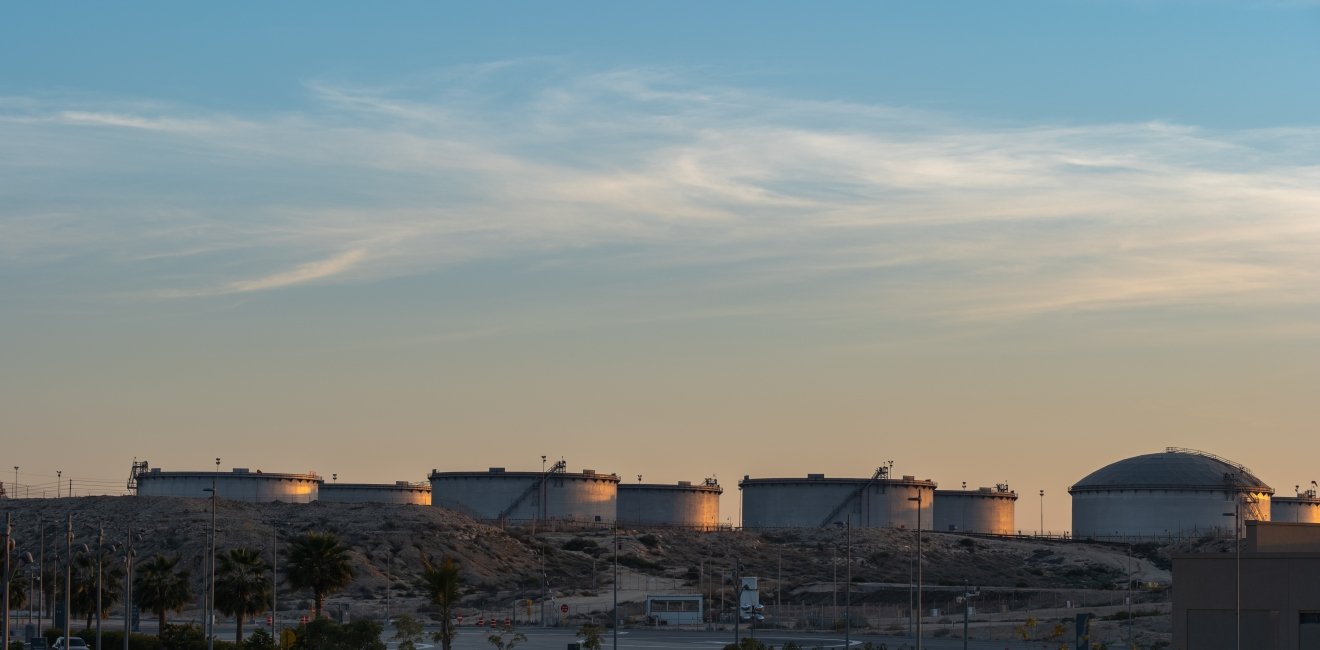Saudi Arabia has launched a full-court press to keep fossil fuels central to the global energy equation for decades to come just as a global climate summit aimed at phasing them out in favor of renewable energy sources began Monday in Scotland.
...just as Saudi Arabia has played a central role “during the oil and gas era, it intends to become a global leader in forging a greener world.”
Crown Prince Mohammed ben Salman (MBS), the kingdom’s de facto ruler, has announced with great fanfare a “Middle East Green Initiative” that includes a pledge to reduce its own greenhouse gas emissions to “net-zero” by 2060. This is the same target date put forth by China and Russia, but 10 years later than the one set by the United States and European Union. The crown prince initially unveiled his initiative in March 2021 in a declaration in which he declared that, just as Saudi Arabia has played a central role “during the oil and gas era, it intends to become a global leader in forging a greener world.”
His intention is clearly set upon selling the world on the novel depiction of Saudi Arabia as the world’s prime producer of fossil fuels and a “green leader” simultaneously. In his view, renewable energy sources are an complement, not a substitute, for oil and gas. They would be used to cover much of Saudi domestic energy needs and thus allow it to export ever more oil, primarily to China and other Asian countries. Among his eye-catching goals is the use of renewable energy sources to generate 50 percent of the kingdom’s energy needs by 2030 and eliminate 130 million tons of carbon emissions. Another is pioneering the use of carbon-clean hydrogen as a major new source of energy.
Absent from the latest gush of Saudi green pronouncements as the U.N. Climate Change Conference in Glasgow unfolds, is any mention of the fact that Saudi Arabia has already began expanding the kingdom’s oil production capacity by one million barrels, up from its present twelve million plus barrels a day. Because of quotas set by the 13-nation Organization of the Petroleum Exporting Countries (OPEC), Saudi Arabia currently produces only about 9.8 million barrels a day. (Only Russia with 10.7 million barrels a day and the United States with over 11 million barrels, produce more.)
The Saudi campaign to legitimize fossil fuels involves both the embrace of renewal energy sources and various schemes to “greenwash” the massive amounts of carbon dioxide they produce...
In an interview on Saudi state television last April, MBS spelled out his abrupt about-face toward ending the kingdom’s longstanding addiction to oil as well as his view on Saudi Arabia’s future in the oil market. He forecast the near total collapse of the United States and Russia as producers within 20 years, making way for the kingdom to remain the world’s prime producer for decades to come. The Saudi campaign to legitimize fossil fuels involves both the embrace of renewal energy sources and various schemes to “greenwash” the massive amounts of carbon dioxide they produce, helping to thwart the climate community’s goal of keeping the average global temperature from exceeding 1.5 degree Celsius (2.7 degrees Fahrenheit) over pre-industrial levels.
Saudi Arabia alone could end what [Minister Al-Jadaan] called the current energy “crisis” if it chose to tap into its spare production capacity of more than two million barrels a day.
Amin Nasser, CEO of Saudi Aramco, the world’s largest, and by far most profitable, state oil company, has called for “a holistic policy” toward fossil fuels given that “hydrocarbon will be part of the energy mix for decades to come.” But he also sought to assure the industry’s critics that new and cleaner technologies in the making would “reduce emissions significantly.” For his part, Saudi Finance Minister Mohammed al-Jadaan points to the current shortage of gas and gasoline supplies in Europe and the United States as a portent of what is in store in the rush to replace fossil fuels with renewables, warning “it could be even worse in the future.” Left unsaid was the fact that Saudi Arabia alone could end what he called the current energy “crisis” if it chose to tap into its spare production capacity of more than two million barrels a day. Instead, Saudi Arabia has chosen, along with OPEC and Russia, to exploit the shortage to keep the price of a barrel of oil well above $80 after seeing it fall to $18 in May 2020—at one point even minus $37—under the impact of the coronavirus-induced recession. The Saudi government expects to reap $150 billion in oil income this year, $40 billion more than in 2020.
After launching his Middle East Green Initiative last spring, the Saudi crown prince has relaunched it at an international climate forum held in Riyadh from October 24-25 where he called for all Middle East countries to join forces “ to protect the environment, confront climate change and develop a roadmap toward reducing carbon emissions in the region by more than 10 percent of [the] global contribution.” His own roadmap includes a call for Saudi Arabia alone to plant ten billion trees and the Middle East countries collectively fifty billion. The former aims to rehabilitate forty million hectares of desert land with carbon-absorbing trees. He did not mention how such a giant undertaking might be accomplished, either in Saudi Arabia or across the Middle East. The kingdom has started experimenting, however, with the use of drones to drop seeds.
Another of the crown prince’s green projects is to establish in Saudi Arabia a regional center to design a “circular carbon economy” aimed at capturing and storing carbon underground. Such a technology is still in its experimental stage.
Yet another such project is pioneering the production of both “blue” and “green” hydrogen. The former relies on carbon-light gas to produce the energy needed in the process and the latter on carbon-free wind and solar power. The Saudi energy minister, Prince Abdulaziz bin Salman, disclosed Saudi Arabia is investing $110 billion in developing a huge new gas field which he boasted would make the Saudis “the biggest adventurers when it comes to blue hydrogen.”
Whether the Saudi public relations blitz aimed at rebranding the kingdom as a “green leader” will convince the outside world remains to be seen. But it looms as a hard sell in light of MBS’s intention to keep fossil fuels as the kingdom’s major source of income, and exports, for the foreseeable future.
The views expressed in these articles are those of the author and do not reflect an official position of the Wilson Center.
Author

Former Washington Post Middle East Correspondent

Middle East Program
The Wilson Center’s Middle East Program serves as a crucial resource for the policymaking community and beyond, providing analyses and research that helps inform US foreign policymaking, stimulates public debate, and expands knowledge about issues in the wider Middle East and North Africa (MENA) region. Read more







